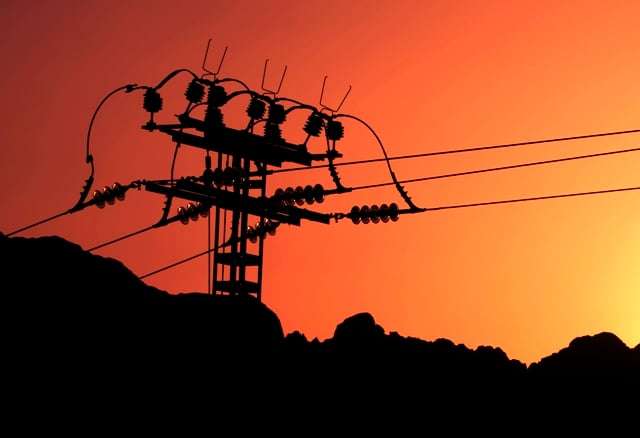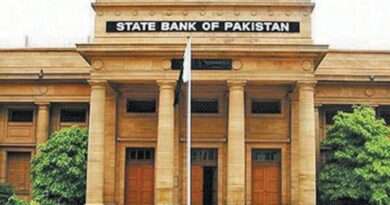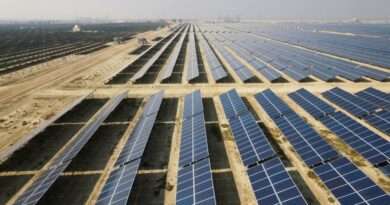Tariff Differential Subsidy Dispute: Mediation Stalls as KWSB Refuses Cooperation
|
Getting your Trinity Audio player ready...
|
Introduction
The ongoing dispute over the Tariff Differential Subsidy (TDS) involving K-Electric (KE), the Government of Pakistan, and state-owned enterprises (SOEs) continues to face significant hurdles. The mediation process, initiated to resolve financial claims and payables, has stalled due to the Karachi Water and Sewerage Board (KWSB) refusing to cooperate.
This dispute has raised concerns among foreign investors and affected KE’s financial operations, leading to repeated delays in the settlement process. To address the issue, a 90-day extension has been proposed to ensure the mediation process is completed efficiently.
This article explores the details of the tariff differential subsidy dispute, the role of different stakeholders, and the broader economic impact of the ongoing impasse.
Understanding the Tariff Differential Subsidy Dispute
What is the Tariff Differential Subsidy?
The Tariff Differential Subsidy (TDS) is a financial mechanism that allows power distribution companies to recover the difference between consumer electricity tariffs and the actual cost of electricity generation. Since electricity prices are often subsidized for consumers, the government compensates power utilities to cover these losses.
In this case, K-Electric (KE) claims substantial unpaid amounts under the TDS framework, which the government and relevant SOEs have yet to fully resolve.
Key Stakeholders in the Dispute
Several entities are involved in the ongoing disagreement:
- K-Electric (KE): The privately owned power distribution company responsible for Karachi’s electricity supply. KE claims unpaid amounts from the government and state entities.
- Government of Pakistan: Responsible for providing tariff differential subsidies and ensuring timely payments.
- State-Owned Enterprises (SOEs): This includes:
- Central Power Purchasing Agency-Guarantee (CPPA-G)/National Transmission and Dispatch Company (NTDC): Entities responsible for supplying electricity to KE.
- Sui Southern Gas Company (SSGC): Provides gas to KE for electricity generation and claims unpaid bills.
- Karachi Water and Sewerage Board (KWSB): One of KE’s major consumers with outstanding payables.
Timeline of the Dispute
- June 10, 2022: The government, under the then Prime Minister’s directive, formed a task force to resolve KE’s financial disputes.
- 2023: The federal government approved several agreements, including the Tariff Differential Subsidy Agreement, Power Purchase Agreement (PPA), and Interconnection Agreements.
- March 4, 2024: Asmat Ausaf Ali was appointed as the mediator to facilitate resolution.
- Current Status: The mediation process remains incomplete due to the refusal of KWSB to participate in discussions.
Challenges Hindering Mediation Progress
1. KWSB’s Non-Cooperation
One of the biggest obstacles is KWSB’s reluctance to engage in the mediation process. Despite repeated requests, KWSB has refused to attend proceedings, making it difficult for the mediator to determine how much KE is owed.
2. Pending Subsidy Payments
KE claims that the government owes significant unpaid tariff differential subsidies, but procedural delays have halted the release of funds. The dispute revolves around:
- Purportedly verified claims (acknowledged but not paid).
- Unverified claims (pending validation from authorities).
3. Disagreements Over Payables
- NTDC/CPPA-G: Claims KE owes payments for electricity supply.
- SSGC: Also filed a claim for overdue gas bills from KE.
- Government: Requests additional time for verification of KE’s claims before releasing funds.
4. Mediation Timeline Constraints
According to Clause 3(4) of the Mediation Agreement, the mediator must issue a written determination within 60 days of appointment. This period can be extended by 30 days if mutually agreed.
Given the lack of cooperation from KWSB and the complexity of claims, a 90-day extension has been proposed to allow adequate time for resolution.
Impact of the Dispute on Stakeholders
1. K-Electric’s Financial Health
With substantial outstanding receivables, KE faces cash flow issues, affecting its ability to pay for fuel and power procurement. This has:
- Created operational risks in Karachi’s electricity supply.
- Caused concern among foreign investors.
2. Government’s Fiscal Burden
The government must balance subsidy payments while ensuring fiscal discipline. Delays in resolving these issues may lead to:
- Higher debt accumulation.
- Increased financial strain on public utilities.
3. Consumer Impact
- If KE struggles financially, it could lead to power outages and higher electricity tariffs.
- A lack of clarity in subsidy payments might result in further delays in government relief programs.
Proposed Solutions for Resolution
1. Ensuring Full Participation in Mediation
The government must enforce KWSB’s participation in the mediation process. Without KWSB’s financial disclosures, KE’s claims cannot be fully assessed.
2. Expedited Verification of Subsidy Claims
Authorities should streamline the verification process to ensure timely payments of valid claims while rejecting unverified ones.
3. Clear Payment Agreements Between KE and SOEs
A transparent settlement mechanism should be established to resolve:
- KE’s payables to NTDC/CPPA-G and SSGC.
- KE’s receivables from the government and KWSB.
4. Approving the 90-Day Extension
The economic decision-making body should approve the proposed extension to ensure that:
- The mediation process is adequately concluded.
- Stakeholders have enough time to negotiate a sustainable settlement.
Conclusion
The Tariff Differential Subsidy dispute remains a major financial challenge for KE, the government, and state enterprises. The lack of cooperation from KWSB has further complicated matters, leading to delays in mediation.
A 90-day extension has been proposed to finalize the resolution process, but active participation from all stakeholders is crucial. Addressing these challenges promptly will help restore stability to Karachi’s energy sector and ensure the sustainability of power subsidies in Pakistan.
Frequently Asked Questions (FAQs)
1. What is the Tariff Differential Subsidy (TDS)?
The TDS is a government-funded subsidy that covers the difference between consumer electricity tariffs and actual generation costs, ensuring affordable electricity rates.
2. Why is the mediation process delayed?
The process is delayed primarily due to KWSB’s refusal to participate, making it difficult to finalize KE’s outstanding receivables.
3. What impact does this dispute have on Karachi’s electricity supply?
If KE continues to face financial difficulties, it could lead to power supply issues, delays in infrastructure investment, and higher electricity prices.
4. What role does the government play in resolving the dispute?
The government is responsible for verifying KE’s claims, ensuring the timely release of subsidies, and enforcing agreements between stakeholders.
5. What is the proposed solution to resolve this dispute?
The 90-day extension of mediation, enforced KWSB participation, and faster claim verification are key solutions to settle the dispute efficiently.




